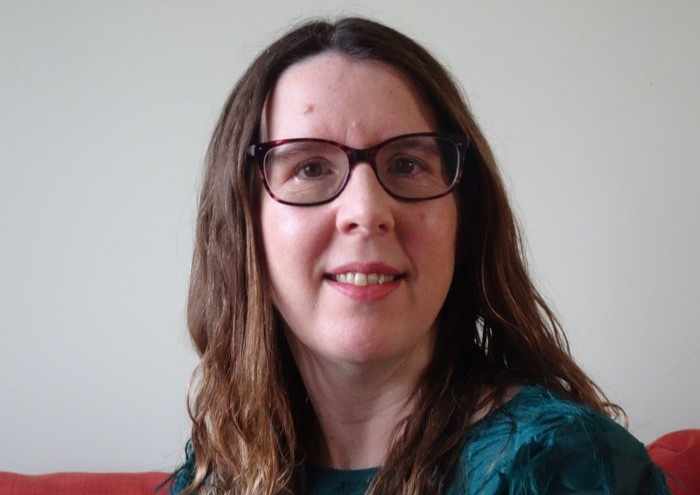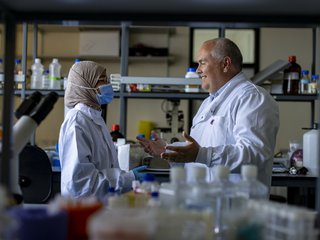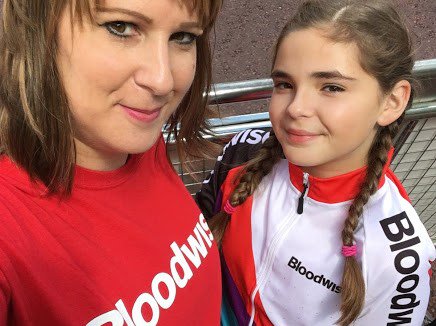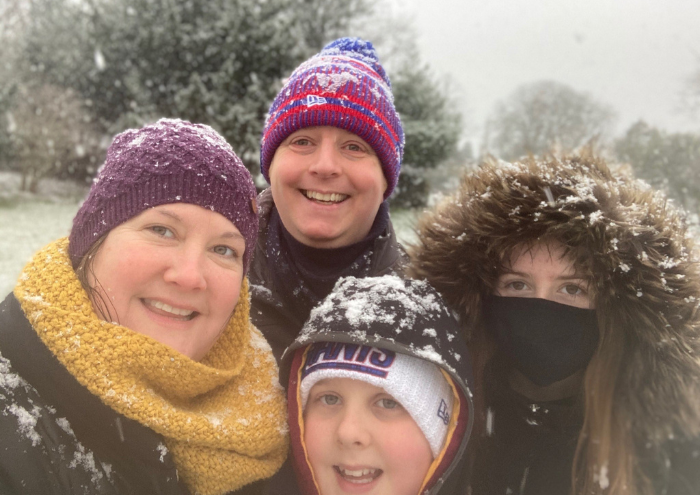What's the one thing you wish you'd known about blood cancer?
We asked six ambassadors to share the things they wish they knew about blood cancer when they, or their loved ones, were first diagnosed. From second opinions to choosing a wig, here's what they had to say...
Jane Leahy, who had acute myeloid leukaemia
The one thing I wish I knew when I was diagnosed with acute myeloid leukaemia (AML) was how long it would take me to fully recover from my stem cell transplant.
The booklets gave a vague guideline of six months, but I made that my target and chose to ignore the next sentence, which quite clearly said that recovery times vary wildly from person to person.

It led me to set unrealistic expectations for myself, and then face disappointment when I couldn’t achieve them. Although I may never ‘fully recover,’ I have adapted to a new normal.
Don't set yourself goals and targets too far into the future because you could be setting yourself up for disappointment.
You can't plan that far ahead and you really need to tackle things day by day, or even hour by hour. Be prepared to adapt and go with the flow too, because there are bound to be surprises which disrupt your plans. Go at your own pace is definitely good advice – and also don't judge yourself against anybody else.
I’ve also met plenty of amazing people through my involvement as ambassador. I wish I had reached out sooner and met all of these inspiring, helpful and knowledgeable people much earlier on.

Sign up to our enewsletter to stay updated on our progress
Join our mailing list to keep updated about the latest news, research, and the ways you can help – including campaigns and events that you might be interested in.
Jude Irwin, whose husband has non-Hodgkin lymphoma
When my husband was diagnosed with non-Hodgkin lymphoma, I wish I knew that in time, and sometimes with help, I would find a place for cancer in our lives.
That place changes and evolves and is sometimes easier to manage than at other times. But it does become a part of your life that you can work with.
Sometimes, it requires letting go of making long term plans and accepting your situation, which can be hard.
It also requires you to refocus on what's important. I wish I knew the strength that lay inside me.
For anyone whose going through this, whether your loved one has been diagnosed or you have, I want you to know that you have this strength inside of you too.
Anna Mamwell, who had AML.
The one thing I wish I knew when I was diagnosed with AML is how much wonderful support there is for people affected by blood cancer. Whether it’s on the Blood Cancer UK support line or online forum.

Melody Berthoud, whose son had childhood acute lymphoblastic leukaemia
I wish I knew that there are other families in the same boat as you, at exactly the same time, and who live close by.
We found support by meeting people in the playrooms at hospitals and realising they live nearby – and then being invited to a Facebook group by another mum.
I also wish I had asked for counselling throughout the entire process. Not just for me, but for my family too.

And finally, I wish I knew that in some cases, you can have chemotherapy at home or even on holiday. It doesn’t always have to be in a hospital.
David Lauder, who has chronic lymphocytic leukaemia
On the clinical side, if you need a second opinion, do ask for it. They will usually respond positively to your request and make arrangements for an additional appointment.
In my case, I got to see one of the leading experts on chronic lymphocytic leukaemia in the country, which was really reassuring.
If you have questions or concerns about your clinical treatment, talk it over with a third party. This can be someone who’s not directly involved with your diagnosis, such as the Blood Cancer UK Support Team.
Hellen Allen, who had acute myeloid leukaemia
If you’re going to lose your hair, and you want to wear a wig, take the time to find the right one. It's one of the few things you can control.
I wish I knew how important having a 'like for like' wig would be for someone like me, especially when going through treatment. Of course, I realise not everyone feels the same way about wigs – you just have to find the thing that works for you.
If you've recently been diagnosed with blood cancer, order our free booklet 'Your blood cancer diagnosis - what happens now?' It tells you the key things to know about blood cancer, how to look after yourself, and tips and stories from other people who've been diagnosed.

Sign up to our enewsletter to stay updated on our progress
Join our mailing list to keep updated about the latest news, research, and the ways you can help – including campaigns and events that you might be interested in.
